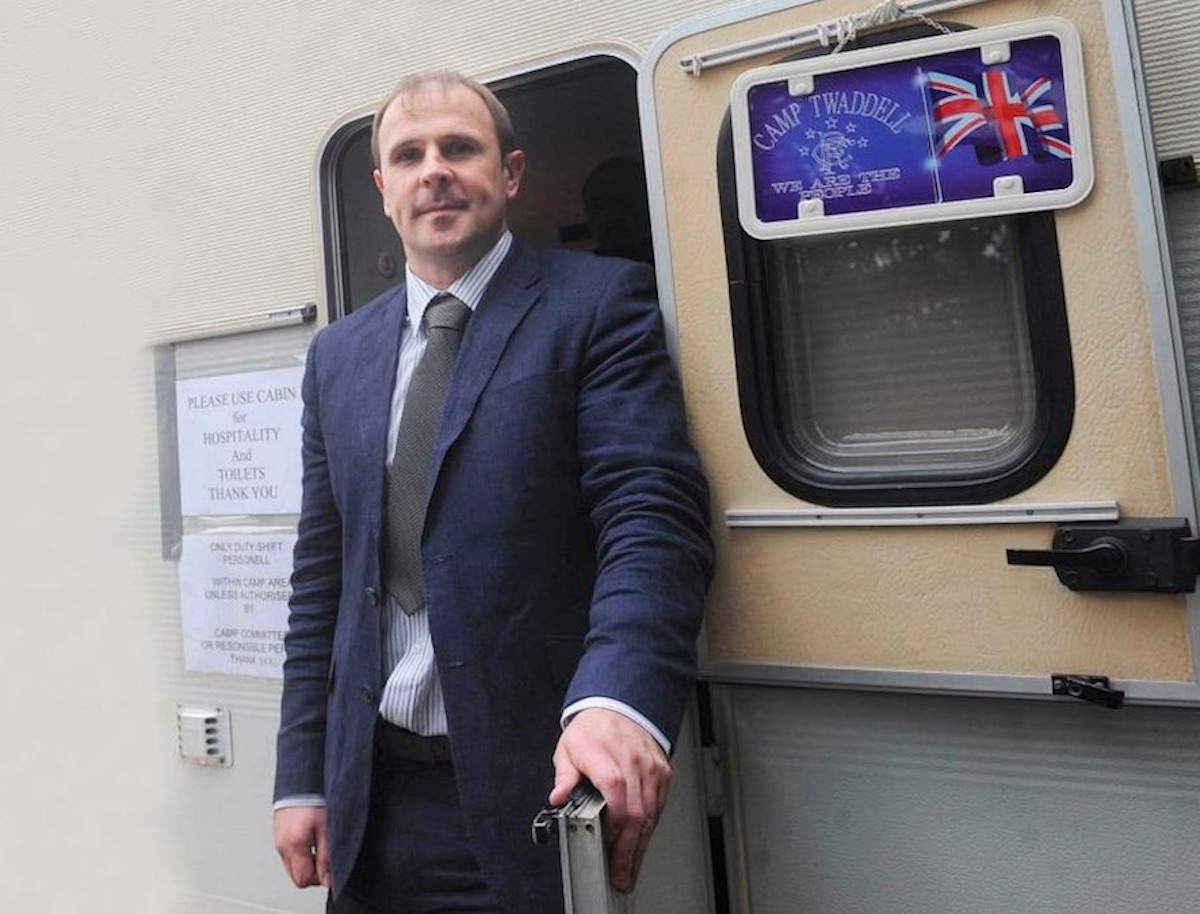
A notorious UVF paramilitary figure was on a peace scholarship backed by the Dublin government when it is alleged he was involved in a dramatic hoax car bomb attack on its Foreign Affairs Minister, Simon Coveney.
Mr Coveney was speaking at a symbolic peace-building event in north Belfast when he was targeted by gunmen who forced a van driver to transport a device to the location where he was speaking. He had to be rushed out as the building was evacuated.
Winston ‘Winkie’ Irvine has been charged over a weapons find thought to be connected to the attack. Irvine was denied bail after firearms, magazines and more than 200 rounds of ammunition were found in a holdall in the boot of his car.
A second man was also charged and denied bail after being accused of transporting the weapons to a meeting with Irvine.
The PSNI said they had found a wide range of ammunition for weapons including assault rifles, as well as a large quantity of cash in a follow-up search at Irvine’s home.
The two arrests were made as part of an investigation into a bomb alert on March 25 when a peace event, organised by the John and Pat Hume Foundation, was disrupted.
The Houben Centre in the Crumlin Road was evacuated while Mr Coveney was giving an address. A funeral service at nearby Holy Cross Church was also forced into a car park.
The terrified driver of a van was threatened by two gunmen and forced to drive a device, which he believed to be a live bomb, to the church.
Irvine is a leading member of the Loyalist Communities Council (LCC), an umbrella group which represents three paramilitary organisations, the UVF, UDA and Red Hand Commando. The group regularly meets with British government officials, most recently last year.
Irvine has denied the arms charges and claimed that he was ‘decommissioning’ the weapons.
He describes himself as a ‘community worker’ and has close connections to a number of state agencies. He has been the public face of various loyalist organisations, including the the ‘North and West Belfast Parades Forum’, which has been involved in parades disputes.
The senior loyalist has enjoyed membership of a number of publicly-funded bodies. His current employers, Intercomm, are described as a “Belfast-based peace and reconciliation initiative”, where he is said to earn around £35,000 per year “working on peace-building initiatives”.
In 2013, BBC Spotlight investigation named him as an active UVF commander. He was accused of orchestrating parade-related loyalist protests that erupted in heavy violence.
Irvine has received financial support from the International Fund for Ireland (IFI) and the taxpayer-funded Communities in Transition fund.
Government support for active loyalist paramilitary figures, as well as the failure to tackle related criminality, has led to accusations of continuing state collusion in loyalist paramilitarism.
Irvine is currently listed as a director in several firms and as a trustee of a housing association. He is one of several loyalists who “have a symbiotic relationship with the state”, according to the authors of a new report submitted to a parliamentary committee in Westminster this week.
They are part of a “shadow state” whereby paramilitaries are presented as community leaders.
“This is what makes it difficult to dislodge them,” said independent researcher Aaron Edwards, adding that the groups have been reinvigorated in recent years.
“These are really gangs now but they are a malign presence. We are now seeing these groups returning to their old raison d’etres of defence,” he told the committee.
“There are 12,500 members of loyalist paramilitary groups. I think we are reaching a very dangerous tipping point and a very serious one at that.”
Irvine’s jailing on remand meant he missed his graduation from Maynooth University following the completion of a master’s degree, funded in part by the Dublin government, ironically on the subject of ‘peace building and development’.
![[Irish Republican News]](https://republican-news.org/graphics/title_gifs/rn.gif)
![[Irish Republican News]](https://republican-news.org/graphics/title_gifs/harp.gif)

